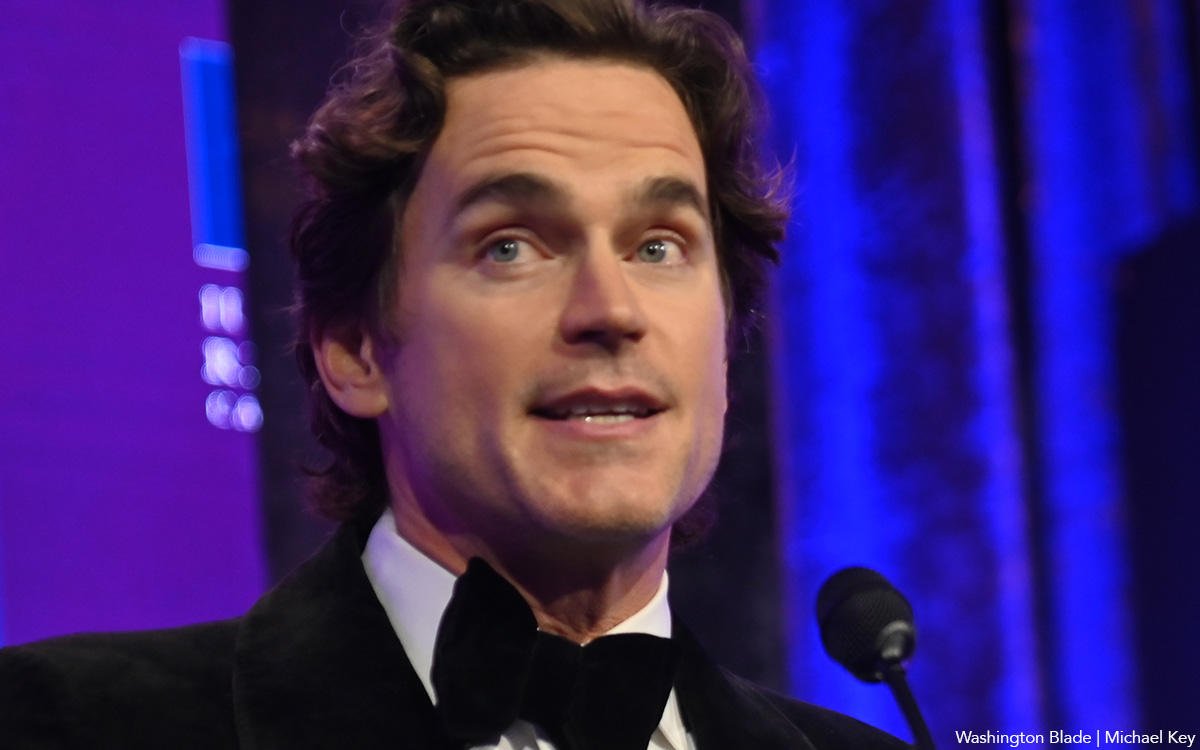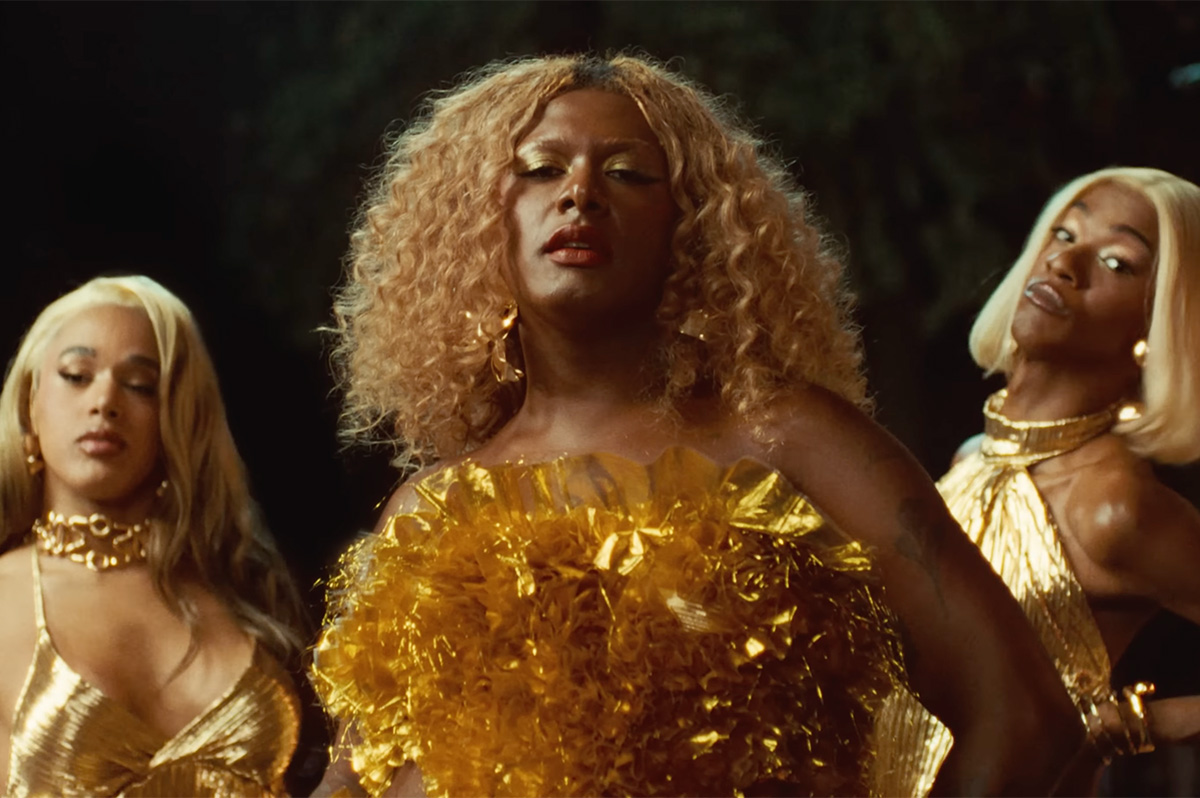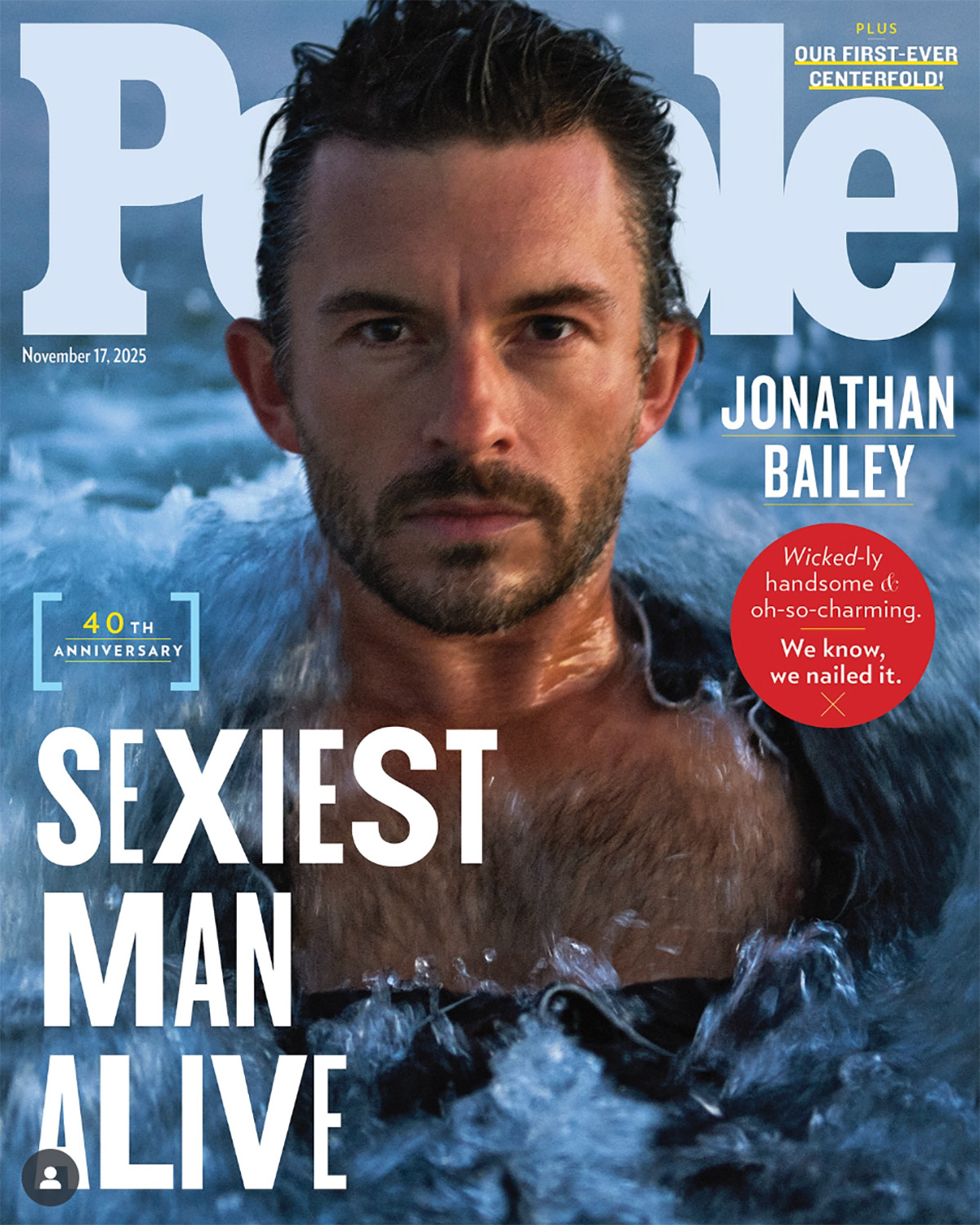Celebrity News
Queer nominees leave empty handed from disastrous Golden Globes
On the road toward a very ‘straight and narrow’ Oscar night?

By now, even if you didn’t watch them, you probably already know that Sunday night’s presentation of the 81st Annual Golden Globe Awards was pretty much a debacle.
From its tense first few minutes, when host Jo Koy (seriously, how many people had to say “no” to the job before they got to Jo Koy?) took his opening monologue rapidly past “irreverent” to “disrespectful” as his audience squirmed uncomfortably, it was clear that the evening’s attempt at a free-wheeling but good-natured roast of Hollywood disguised as an awards show was not going to go as planned. Koy’s efforts at snark were met with palpable hostility from the celebrity crowd, most of whom looked like they would rather be anywhere else but in the audience at the Beverly Hilton, and things just got worse from there.
We could go on about the lackluster, often tone-deaf writing, or the poorly conceived “stunt pairings” of stars as presenters, or the general sloppiness that made the show feel precarious from beginning to end, but fortunately, there’s no need for us to relive all that here. The reason you’re reading this (since this is the Blade, after all) is to find out about the “queer take” on the Golden Globes; unfortunately, the only one we can offer is that there really was no queer take on the Golden Globes.
Going into the ceremony, which, as always with the Hollywood Foreign Press Association’s annual awards show, bestowed the organization’s honors for both film and television, there were only a handful of out queer acting nominees. Two of these competed in a single category (Best Male Actor in a Motion Picture Drama): Colman Domingo, nominated for his star turn in the title role of “Rustin,” and Andrew Scott, who was up for his widely acclaimed performance in Andrew Haigh’s ethereal gay ghost story, “All of Us Strangers.” Both lost the award to Cillian Murphy, the star of Christopher Nolan’s “Oppenheimer.”
The other out nominee in the film acting categories, previous four-time Golden Globe winner Jodie Foster, was competing as Best Supporting Female Actor in Any Motion Picture for her performance in the Netflix biopic “Nyad,” but she lost to Da’Vine Joy Randolph of Alexander Payne’s “The Holdovers.”
On the TV side, out gay performer Matt Bomer, nominated as Best Actor in a Limited or Anthology Series or TV Movie for Showtime’s queer historical romance “Fellow Travelers,” lost to Steven Yuen in the Netflix smash, “Beef.” Natasha Lyonne – who identifies as straight but has always been open about her bisexual attractions – was up for Best Actress in a Musical or Comedy Series as the star of “Poker Face.” That award went instead to Ayo Edebiri of “The Bear.”
It’s true that Billie Eilish – who was nominated alongside brother Finneas O’Connell for co-writing Best Original Song nominee “What Was I Made For?” from “Barbie,” an award that they went on to win – has identified publicly as being attracted to both males and females, something she recently reasserted in a Variety interview (before following up with an Instagram post commenting that “literally who cares” about her sexuality), so at least there was one winner from the queer community during the evening.
As for the movies and shows themselves, several of the nominated titles included queer characters and themes, with Best Picture nominees “Maestro” (about bisexual composer/conductor Leonard Bernstein) and “May December” (from pioneering “New Queer Cinema” filmmaker Todd Haynes) as the most obvious examples. Both films received multiple nods; neither walked away with a single win. In the TV division, several queer-oriented shows, from “Fellow Travelers” to “The Last of Us” to “Ted Lasso,” lost in their respective categories, and “Wanda Sykes: I’m An Entertainer,” the out lesbian comedian’s Netflix special nominated for the newly added Best Standup Performance category, lost to former Golden Globes host Ricky Gervais’ “Ricky Gervais: Apocalypse.”
There were few queer moments of note, in fact, during the event, though the presence of trans “Euphoria” star Hunter Schaefer onstage as a presenter was a welcome nod to inclusion. A more positive spin can be found by acknowledging the show of diversity – an issue around which the Golden Globes has long been deservedly criticized – among the winners. Several acting wins went to Black performers (Randolph, Edebiri) and performers of Asian descent (Yuen and “Beef” co-star Ali Wong), while Lily Gladstone became the first indigenous American performer to win a Golden Globe as Best Leading Female Actor (Motion Picture Drama) for “Killers of the Flower Moon.” (Note: Gladstone has identified as “middle-gendered” in subsequent interviews and uses she/they pronouns.) We can only be thrilled for these well-deserved wins.
Still, if the Golden Globes are – as they’ve long been considered – the official “kick-off” of Awards Season and an important (if not always accurate) indicator of the likeliest big contenders at the subsequent (and more prestigious) ceremonies to follow over the next few weeks, it looks like we might be on the road toward very “straight and narrow” Oscar night.
The complete list of nominees and winners can be found at the Golden Globes website.

Rob Reiner, most known for directing untouchable classics like “The Princess Bride,” “Misery,” “When Harry Met Sally…,” and “Stand by Me,” died Dec. 14 alongside his wife, Michele Singer Reiner, in their Los Angeles residence. While investigations are actively underway, sources have told PEOPLE Magazine that the pair’s son, Nick Reiner, killed his parents and has been taken into custody.
Reiner was a master of every genre, from the romantic comedy to the psychological thriller to the coming-of-age buddy movie. But in addition to his renowned work that made him a household name, Reiner is also remembered as a true advocate for the LGBTQ community. In 2009, Reiner and his wife co-founded the American Foundation for Equal Rights, helping fight against California’s Prop 8 same-sex marriage ban. They were honored at the 2015 Human Rights Campaign Las Vegas Gala.
In a statement, HRC President Kelley Robinson said: “The entire HRC family is devastated by the loss of Rob and Michele Reiner. Rob is nothing short of a legend — his television shows and films are a part of our American history and will continue to bring joy to millions of people across the world. Yet for all his accomplishments in Hollywood, Rob and Michele will most be remembered for their gigantic hearts, and their fierce support for the causes they believed in — including LGBTQ+ equality. So many in our movement remember how Rob and Michele organized their peers, brought strategists and lawyers together, and helped power landmark Supreme Court decisions that made marriage equality the law of the land — and they remained committed to the cause until their final days. The world is a darker place this morning without Rob and Michele — may they rest in power.”
Reiner’s frequent collaborators have also spoken out as the industry is in mourning, including figures like Ron Howard and John Cusack.
A joint statement from Jamie Lee Curtis and Christopher Guest (who starred in Reiner’s “This is Spinal Tap”) reads: “Christopher and I are numb and sad and shocked about the violent, tragic deaths of our dear friends Rob and Michele Singer Reiner and our ONLY focus and care right now is for their children and immediate families and we will offer all support possible to help them. There will be plenty of time later to discuss the creative lives we shared and the great political and social impact they both had on the entertainment industry, early childhood development, the fight for gay marriage, and their global care for a world in crisis. We have lost great friends. Please give us time to grieve.”
While attending the 2019 HRC Los Angeles Dinner, Reiner spoke out about the need for equality: “We have to move past singling out transgender, LGBTQ, black, white, Jewish, Muslim, Latino. We have to get way past that and start accepting the idea that we’re all human beings. We’re all human beings, we all share the same planet, and we should all have the same rights, period. It’s no more complicated than that.”
Brazil
Black transgender singer from Brazil wins three Latin Grammy Awards
Liniker performed at Las Vegas ceremony

A Black transgender singer and songwriter from Brazil on Nov. 13 won three Latin Grammy Awards.
Liniker, who is from Araraquara, a city in São Paulo State, won for Best Portuguese Language Song for her song “Veludo Marrom,” Best Portuguese-Language Urban Performance for her song “Caju” from her sophomore album of the same title, and Best Portuguese Language Contemporary Pop Album for “Caju.”
She accepted the awards during the Latin Grammy Awards ceremony that took place in Las Vegas. Liniker also performed.
“I’ve been writing since I was 16. And writing, and poetry, have been my greatest form of existence. It’s where I find myself; where I celebrate so many things I experience,” said Liniker as she accepted her first Latin Grammy on Nov. 13. “And being a composer … Being a trans composer in Brazil — a country that kills us — is extremely difficult.”
Liniker in 2022 became the first openly trans woman to win a Latin Grammy.
Celebrity News
Jonathan Bailey is People’s first openly gay ‘Sexiest Man Alive’
‘It’s a huge honor. And it’s completely absurd.’

Actor Jonathan Bailey made history Monday after he was named People magazine’s first openly gay “Sexiest Man Alive.”
Bailey is known for his starring role in “Wicked,” as well as well-received turns in “Bridgerton” and “Fellow Travelers,” for which he was nominated for an Emmy. He returns to the big screen on Nov. 21 in the “Wicked: For Good” sequel.
Bailey announced the news on the Nov. 3 “Tonight Show” with Jimmy Fallon.
“It’s the honor of a lifetime,” Bailey, 37, said. “I want to say, Jimmy, thank you so much for turning it down so that I could be here.”
Bailey told People, “It’s a huge honor. Obviously I’m incredibly flattered. And it’s completely absurd. It’s been a secret, so I’m quite excited for some friends and family to find out.”
People launched its popular “Sexiest Man Alive” issue in 1985 with inaugural winner Mel Gibson. Last year’s winner was actor John Krasinski.
Bailey came out publicly in 2018 and founded a nonprofit, Shameless Fund, which raises money for LGBTQ organizations and issues.




















